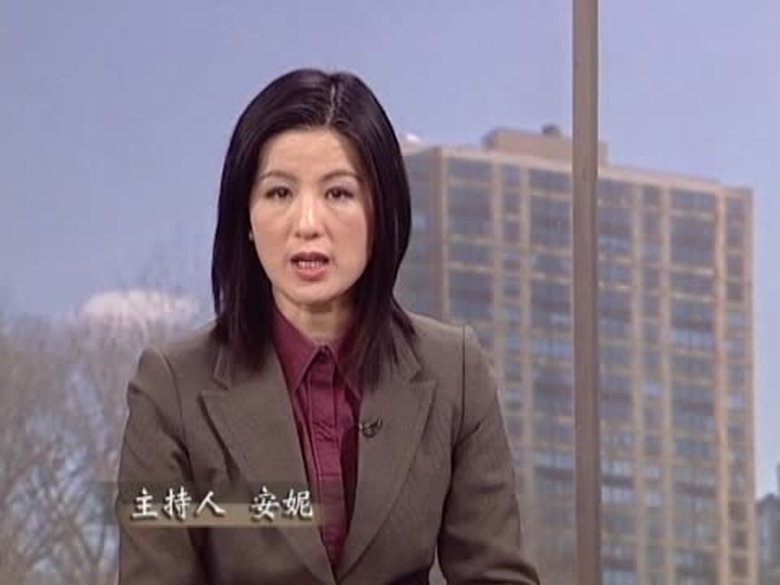【新唐人2012年2月15日訊】中共國家副主席習近平2月13號起對美國進行為期5天的訪問,14號與美國總統奧巴馬舉行會晤。而就在習近平抵美當天,中共發佈公訴「廈門遠華走私案」主犯賴昌星的消息,使得牽連此案的習近平訪美籠罩陰霾。
美國白宮14號為習近平舉行了歡迎儀式,奧巴馬總統與習近平舉行首次正式會晤。前白宮國家安全委員會亞洲事務資深主任葛林(Michael Green)指出,習近平和奧巴馬等美國官員有許多重要的雙邊、區域和全球議題要討論,例如伊朗、朝鮮和國際經濟問題等,不過解決具體問題並非習近平訪美的目標。
習近平臨行前接受《華盛頓郵報》採訪,批評美國在亞太加強軍事部署、強化軍事同盟﹔並且表示,美國政府不應該因為人民幣匯率和貿易摩擦而影響中美雙邊關係。白宮13號對此回應反駁。
奧巴馬政府表示,美國決不會為了款待習近平而在重大問題上作出犧牲,不會避談人權、言論和宗教自由,以及西藏和新疆的緊張局勢。
最近,四川藏區發生軍警開槍射殺多名藏人事件,引起國際社會譴責。13號,4百多名藏人在華盛頓中共駐美大使館前舉行示威,焚燒中共國旗,抗議當局在西藏採取的嚴厲鎮壓政策。
美國副總統拜登在習近平訪美前夕會見了4名中國人權活動人士,對中國的人權倒退表示關切。
西方媒體在報導習近平訪美時,提到2009年初,習近平訪問墨西哥發表的演講,習近平演講中說:「有些吃飽了沒事幹的外國人,對我們的事情指手畫腳。」這番言論曾經引起西方媒體的不滿,認為沒有政治家的風範。
習近平抵美當天,華盛頓《法輪大法佛學會》在美國《國家記者俱樂部》召開新聞發佈會,要求中共停止迫害法輪功,法辦迫害元兇江澤民等人,並希望美國政府公布王立軍和美國領事館談話與迫害法輪功真相有關的內容。
《華爾街日報》指出,重慶副市長王立軍投奔美領館的政治醜聞,顯示中共十八大習近平接班可能不順利。而針對習近平訪美,中共媒體出現了兩種不同的聲音。
13號,《人民網》發表文章聲稱「習近平今起訪美 或定調未來10年中美關係的發展」。當天,《鳳凰網》卻轉載人民日報社原總編輯李莊的文章說:「事先指定誰誰接班,是封建朝廷的做法」。
深圳獨立學者朱建國表示,這是在對海外媒體稱為「皇儲」的習近平訪美表達不滿。
朱建國:「在習近平訪美把它轉載出來,那麼就意味著國內的文化界、知識界甚至是老百姓都會認為,十八大還沒有開,習近平訪美的身份表面上是國家副主席,實際上是以已經確定的十八大中國的新領導人這麼一個身份去的,那麼這就顯然是一種封建、延續封建王朝的那一套。」
就在習近平抵美當天,廈門市檢察院突然對外公布:對「遠華走私案」主犯賴昌星提起公訴。賴昌星手裡握有江澤民派系人馬的罪證,牽涉賈慶林、賀國強、習近平等人。其中,習近平曾在福建任職17年,官至福建省長。
外界分析指出,就在習近平接班不確定、希望通過訪美獲得美方認可加碼的這個時刻,中共發佈公訴賴昌星的消息,其中卷入3名政治局常委﹔再加上薄熙來、王立軍相互火拚,顯示中共高層全面內訌、出現分崩離析的前兆。
新唐人記者秦雪、李元翰、薛莉採訪報導。
--------------------
Xi Jinping is Met with Protests in the U.S.
The Chinese regime's Vice President, Xi Jinping, began his
five day visit to the U.S. on Feb 13th and met with Obama on Feb 14th.
The day Xi Jinping arrived in the U.S, the Chinese regime
publicly prosecuted the main culprit behind the
“Macau Yuanhua smuggling case,” Lai Changxing, putting a
dark cloud over Xi Jinping's visit to the U.S.
The U.S. White House held a welcome ceremony for Xin Jinping
on Feb 14th, and Obama officially met Xin Jinping for the first time.
Former senior director of White House National Security
Committee for Asian Affairs, Michael Green, pointed out that
Xin Jinping has many important bilateral, regional, and
global issues to discuss with Obama and other U.S. officials
such as Iran, North Korea, the world economy, and more.
However, solving these issues is not the goal of Xin Jinping's visit.
Before the visit began, Xi Jinping accepted an interview
From the Washington Post,
in which he criticized the U.S. for increasing
its military deployment in Asia and fortifying alliances.
He also expressed that the U.S government should not let the
Renminbi exchange rate and trade issues affect its relationship with China.
The White House refuted these accusations on Feb 13th.
The Obama administration expressed that the U.S. will not
make sacrifices on major issues just to welcome Xi Jinping,
and will not shy away from discussing human rights, freedom
of speech and religion, and the conflicts in Tibet and Xinjiang.
Recently, military police in the Sichuan, Tibet region open fired
and killed many civilians, and were condemned by the international society.
On Feb 13th, 400+ Tibetans held protest in front of the
Chinese Embassy in Washington D.C.
They burned the Chinese flag and protested the Chinese
regime's severe suppression in Tibet.
U.S. Vice President Joe Biden met with four Chinese human
rights activists before Xi Jinping's visit and
expressed concern over China's reversing human rights record.
Western media reported that during a speech by Xi Jinping
in early 2009 in Mexico, Xi Jinping said, “Some foreigners
who have nothing better to do keep getting into our business.”
The speech caused discontent among western media, and
some expressed that Xi Jinping lacks a politician's character.
On the day Xi Jinping arrived in the U.S., The Washington
D.C. Falun Dafa Association held a press conference at
The National Press Club to demand that the Chinese regime
stop persecuting Falun Gong.
They also pushed for the punishment of Jiang Zemin and
others who are behind the persecution,
and urged the U.S government to publish the conversation with
Wang Lijun that is related to the persecution of Falun Gong.
The Wall Street Journal pointed out, Chongqing vice-major
Wang Lijun visit to the U.S consulate is major political scandal.
This shows Xi Jinping's rise at the 18th Peoples Congress
might be in jeopardy.
Regarding Xi Jinping's visit to the U.S., Chinese regime
media speak in two different voices.
On Feb 13th, Renmin Network wrote an article entitled, “Xi
Jinping visits the U.S., deciding U.S-China relation for the next 10 years.”
On the same day, Phoenix network published an article by
the former People's Daily Chief Editor, Li Zhuang, in which
He wrote, “Deciding who rise into power beforehand is
the method of feudal dynasties.”
Shenzhen independent scholar Zhu Jianguo expressed that
the media is showing their discontent for Xi Jinping who is considered the “Crown Prince.”
Zhu Jianguo, “Xin Jinping visiting the U.S was published.
That means scholars, media, and common citizens will think
that the 18th people's congress has not been held yet,
Xi Jinping is visiting the U.S as vice president on the surface,
but in reality he's going as the new leader.
This obviously shows a continuation of the feudal dynasty
type of method.”
On the day Xi Jinping arrived in the U.S., Macau's
procuratorate suddenly announced,
“publicly prosecute the main culprit behind the
“Macau Yuanhua smuggling case: Lai Changxing.”
Evidence suggests that Lai Changxing is behind the crimes of
Jiang Zemin supporters Jia Qinglin, He Guoqiang, Xi Jinping and others.
Among these, Xi Jinping was a official in Fujian for 17 years,
and was governor of Fujian.
External analysts point out, as Xi Jinping's coronation is not sealed,
he hopes to gain the acceptance of the U.S at this crucial time.
The Chinese regime suddenly prosecuted Lai Changxing, a case
that involves three members of the Politburo Standing Committee.
In addition, Bo Xilai and Wang Lijun began fighting.
All this shows major conflicts among the regime's central leadership,
a precursor to the disintegration of the communist party.
NTD Reporters Qin Xue, Li Yuanhan and Xue Li
看下一集

【禁聞論壇】中國人慢性病正在「井噴」

【禁聞】紐約親共僑領福建征地 曝浸透黑幕

【禁聞】習近平訪美 中共人權記錄引共憤

【禁聞】學者:王立軍骨牌效應 牽薄砸周

【禁聞】家屬尋找王立軍: 「無可奉告」

【禁聞】王立軍揭薄延燒江派 胡掌控薄王案

【禁聞】薄周整習 江派大亂 迫害血債成焦點

【禁聞】法學教授:重慶打黑報告去年呈高層

【禁聞】美宗教自由特使訪華 中共延簽證

【禁聞論壇】中國的財富到哪裏去了

【禁聞】外媒:中共內鬥激烈 改革希望不大

【禁聞】文昭:薄熙來的重慶模式 居心叵測

【禁聞】王立軍妻女失蹤 王恐「被精神病」

【禁聞】王薄拉響維穩炮 中共責令軍隊整風

【禁聞】王立軍涉嫌活摘法輪功學員器官

【禁聞】美眾議院提立案調查王立軍事件








